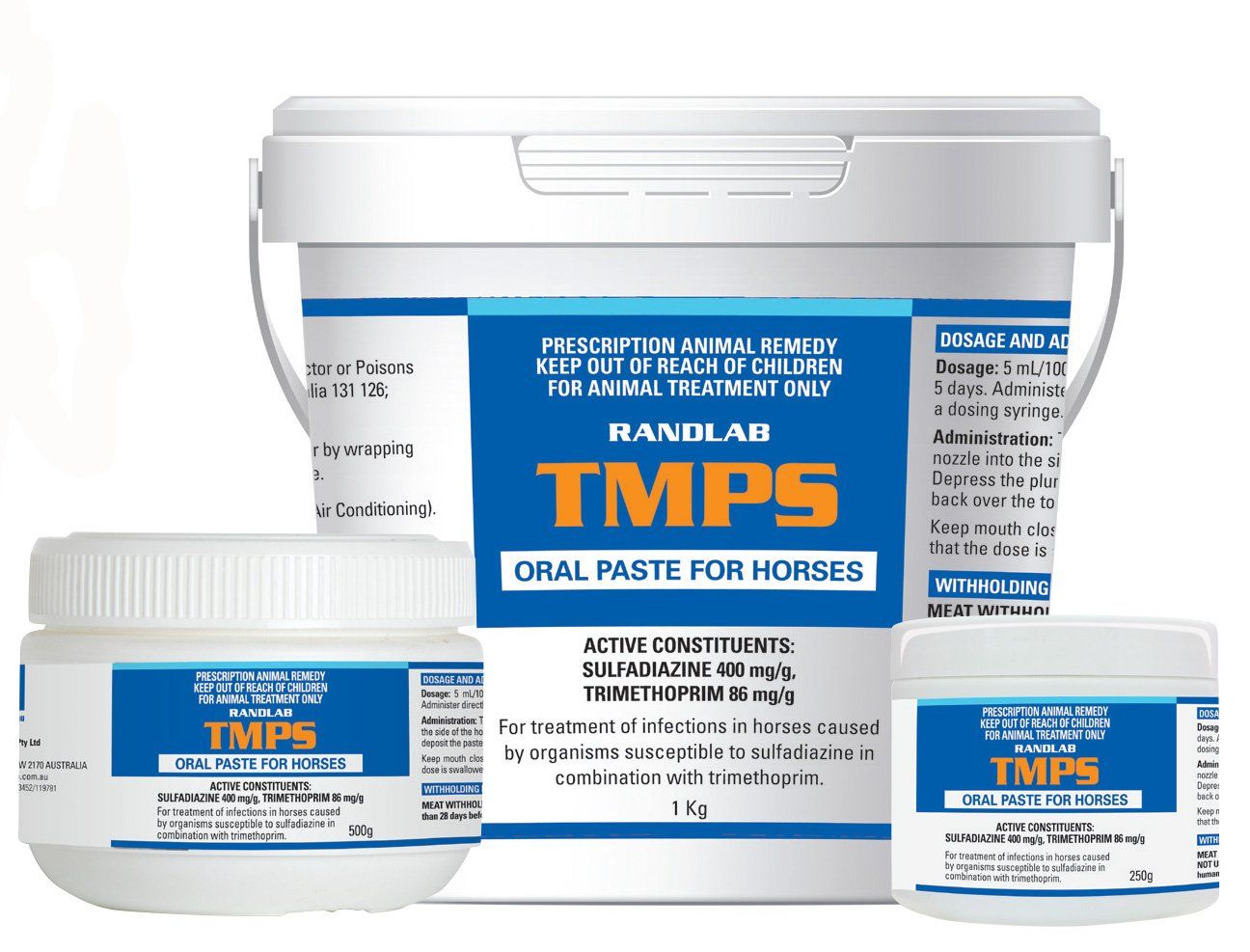This page is for registered veterinary surgeons only. Veterinary medicines available to all veterinarians. For more information on these products please contact the Randlab office or your local veterinary medicines wholesaler. For inquiries outside of Australia check with your local Randlab office for supply and registration status.
TMPS Oral Paste for Horses
Potentiated sulfonamide antimicrobial

On your team for over 20 years
Contact Us
Randlab Australia
71 Milperra Road,
Revesby NSW 2212
Phone: +612 9728 3505
Fax: +612 9728 4352
All Rights Reserved | Randlab Pty Ltd
© 2026
All images and information featured on this website are copyrighted and remain the property of Randlab.
Use of all images and information is only permitted after express approval from the owner (Randlab) available through info@randlab.com.au
DISCLAIMER: The information contained in this website is believed to be correct at the time of publication. However, veterinarians should rely on their own research prior to administering or prescribing any of the products.


